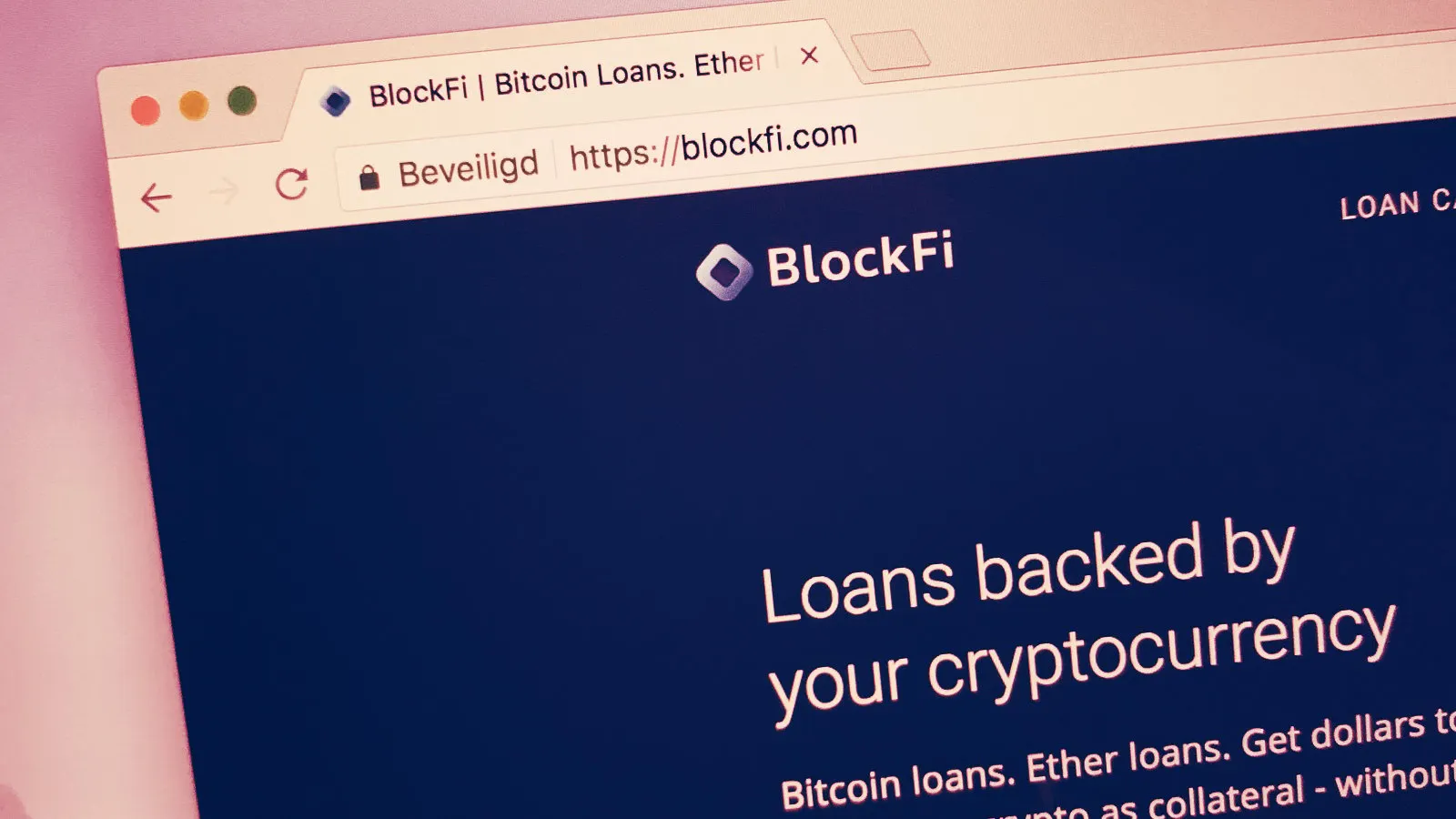In brief
- BlockFi wasn't allowing signups for much of Sunday and Monday.
- The team says it's working on the issue.
Crypto lending and savings application BlockFi temporarily stopped taking new signups for its service on Sunday evening.
A note at the top of the website currently reads: “NOTE️: New sign ups for BlockFi are temporarily paused. Existing BlockFi clients continue to have full access to the platform. Thank you for your patience as we upgrade our systems.”
However, while the system upgrade already occurred on Monday morning, new signups remained paused.
Hi there, we are still temporarily pausing new sign ups for BlockFi. We apologize for the inconvenience and keep an on our Twitter for updates.
— BlockFi (@BlockFi) March 8, 2021
Neither BlockFi nor its co-founder and SVP of Operations Flori Marquez have responded to a Decrypt request for comment.
There are plausible explanations that are relatively benign.
For instance, in January, crypto and stock trading platform eToro was unable to meet high trading demand. Rather than disappoint existing users, it upped the minimum starting deposit for new users, who had joined in droves and were putting strain on the network.
Later that month, eToro indicated it might also have to limit how much crypto existing users could buy—not because its systems were overloaded but because there might not be enough liquidity for eToro to buy on customers’ behalf.
Of course, eToro isn’t the only crypto platform to publicly report difficulties. US-based exchange Coinbase also has a habit of going down during periods when there’s a large spike in trading volume.
BlockFi’s core offering is a kind of savings account for cryptocurrency. Customers receive interest on their deposits of Bitcoin, Ethereum, and a handful of other cryptocurrencies and dollar-pegged stablecoins. It also lets customers put up cryptocurrency as collateral for same-day loans of US dollars.
The service has grown over the years to keep up with demand for crypto-centric financial products. It expanded into Asia last April, filed papers with the SEC in January of this year to start a Bitcoin trust for accredited investors, and has steadily added new assets to its platform, such as Chainlink.
BlockFi’s also experienced growing pains as it reportedly plans to go public by the end of the year.
The company took flak last May for taking five days before reporting a data breach that left some users’ personal data open to hackers via SIM swaps. Essentially, hackers fooled mobile phone companies into thinking they owned the numbers of BlockFi users. They then used those numbers to gain access to some personal data via BlockFi, including addresses and activity histories, but not social security numbers and passwords, according to the company.

